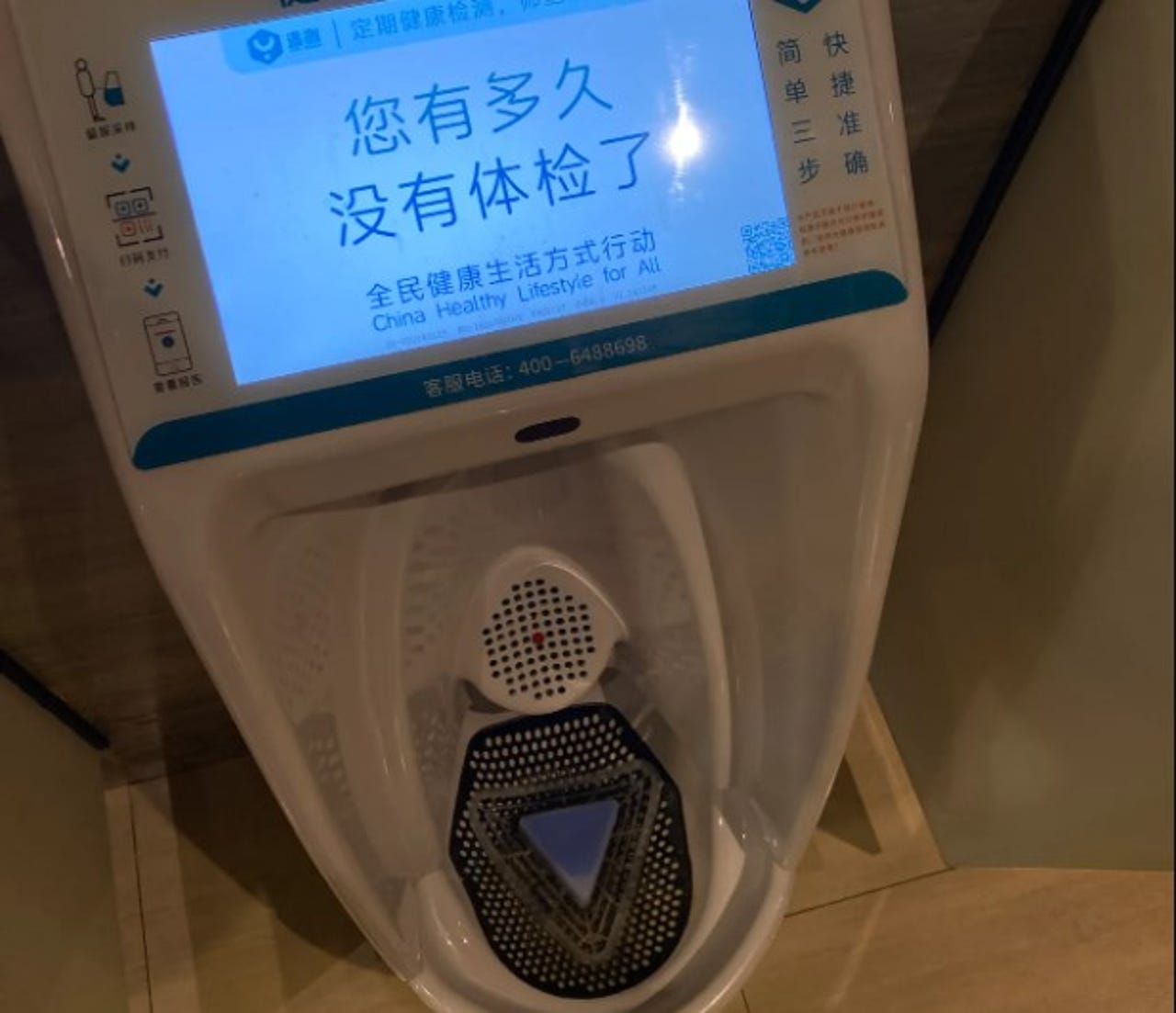
Would you pay $2.75 for a health check whenever you feel like it?
That was the spontaneous experience enjoyed by Shanghai resident Chris Petersen-Clausen when he visited a public restroom in a shopping center.
Also: Apple Watch Series 9 review: Why I’m not settling for the less expensive models
He positioned himself at a urinal. The urinal had a screen offering a urine test right there.
As he described on TwitterX: “I know what you’re thinking: A Chinese company — what about privacy? Truth be told — I am middle-aged and haven’t had a health check in a while. I’m more worried about knowing everything is OK and the convenience is unbeatable. I’m finally actually doing what I know I should.”
The process sounds blessedly simple. You pay your 19.90 Yuan (about $2.75) via WeChat, offer up some personal details and — remarkably soon — get details of your chemical innards, such as Vitamin C and nitrite levels.
Said Petersen-Clausen: “Before I even made it down the escalator, I had my results.”
The results showed he lacked calcium, but was otherwise a rather healthy human being.
Petersen-Clausen is a celebrated freelance cameraman and documentary director, a Werner Herzog in the making. He once traveled with former NBA great Dennis Rodman to North Korea and took some famous pictures.
And, full disclaimer here, he used to work for me as an art director in New York. So I contacted him to ask more about the whole experience.
“I did not know about these urinals. I just stumbled over them in a shopping mall and got curious,” he told me.
Also: Amazon Clinic expands telemedicine services nationwide
Who, though, might make the most use of this service?
“I feel the target audience is the chainsmoking forklift driver who never gets a checkup. I like the idea of them finding out there is something they should see a doctor about and being saved that way,” he said.
The psychology of this technology is very persuasive. It brings health monitoring to the people, rather than the people having to — in many cases — pluck up the courage to see a doctor. The sheer surprise of discovering the health check machine on the urinal is disarming too.
Indeed, Petersen-Clausen was so moved by his first test that he thought he’d try it again to see if his calcium levels had diminished.
He said: “A few days later I stumbled over another of these urinals and did another test. Apparently, I had been drinking enough milk by then. The tests seem to be rather comprehensive as well.”
As more people use Apple Watches to monitor aspects of their health, one can imagine that this sort of technology might swiftly be embraced.
“I don’t think this shall replace a visit to your doctor but it might very well prompt one. A cardiologist told me that thanks to Apple Watches he now saw more people before they had heart attacks,” said Petersen-Clausen.
Of course, there’s always the privacy concern — and it’s not a small one. There’ll be those who worry that such public health checks — even if run by a private company — might quietly betray their data. Some might worry, too, that the technology could monitor for other substances — the less-than-legal or merely frowned-upon kinds — that their bodies may contain.
Also: The best fitness rings you can buy: Expert tested
The fear of trust betrayed is never far away. Does an all-clear from a machine in a public restroom offer a false sense of well-being?
But we all want to live a little longer and we know we need certain data input to make that happen.
Anything that makes it easier to discover that data may seem to many — as it did to Petersen-Clausen — like a very good thing.

